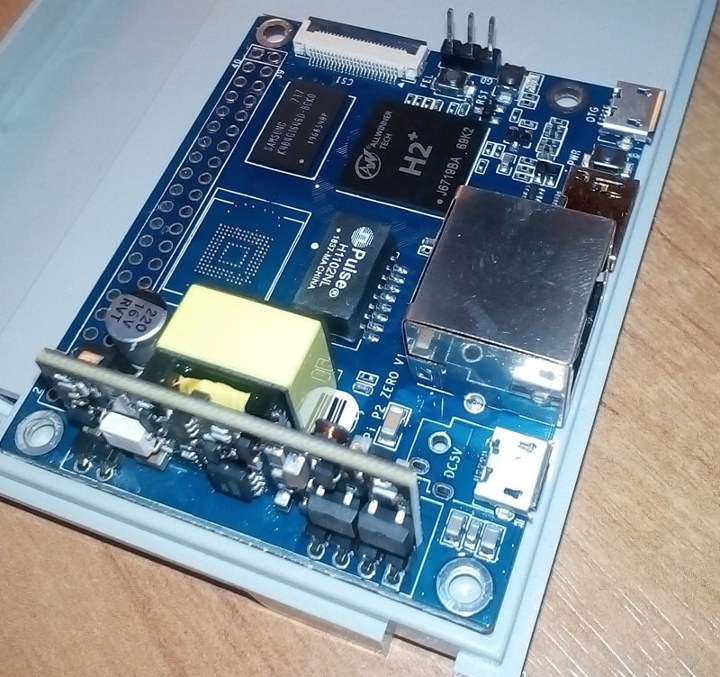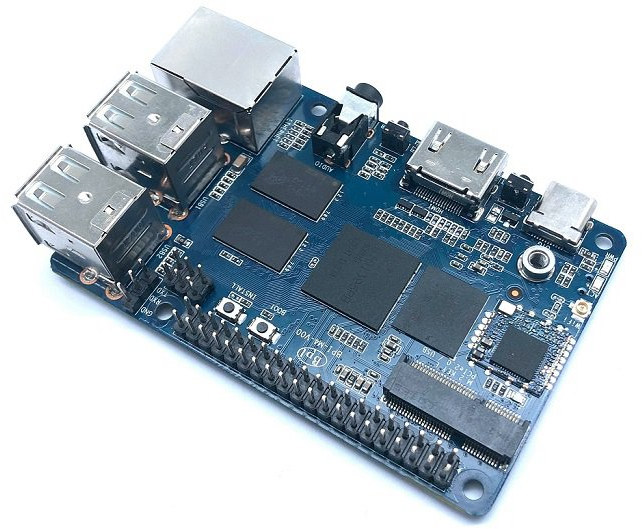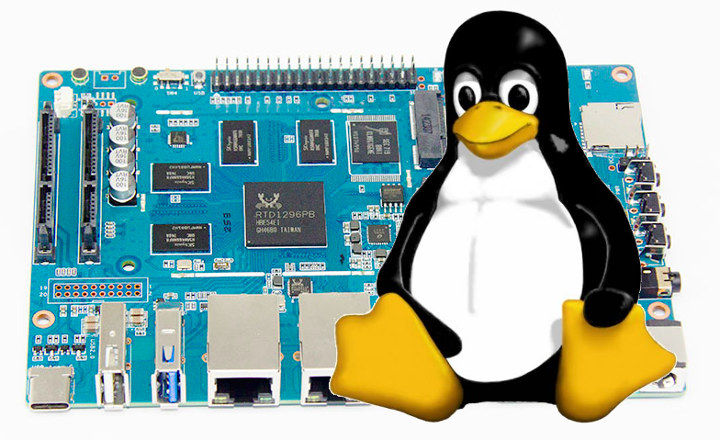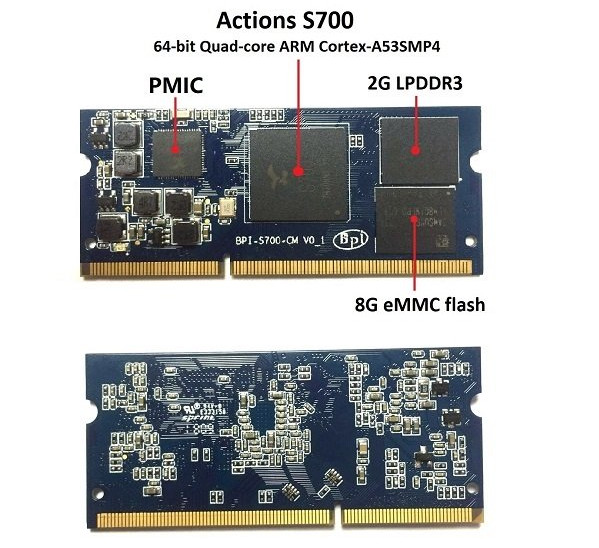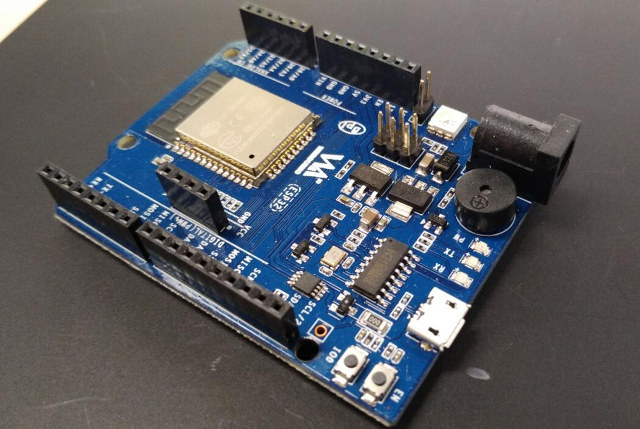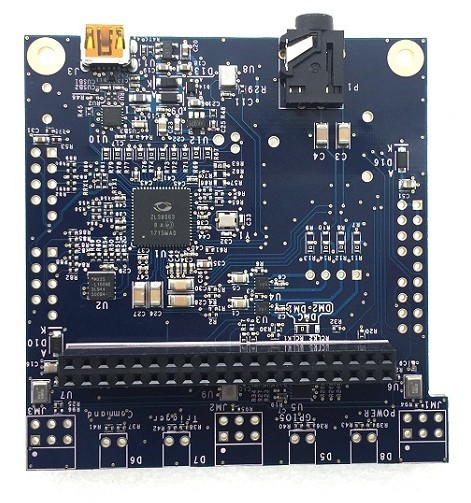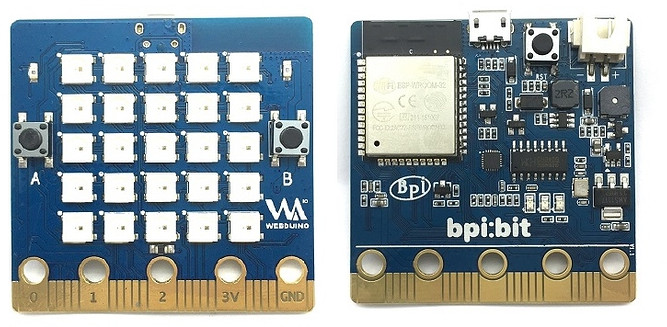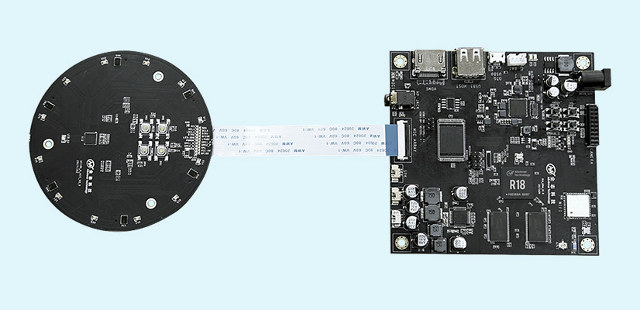Last year SinoVoIP introduced Banana BPI-P2 Zero board powered by Allwinner H2+ processor with 512MB, 10/100M Ethernet with Power-over-Ethernet, WiFi & Bluetooth, a mini HDMI port, and an 8 GB eMMC flash. They also launched a lower cost version without eMMC flash nor wireless module for $16, and the optional PoE module going for $6 extra. The company is now selling the board at a promotional price of $13 without PoE, and $19 with RT9600 POE module. The shipping fee is not included in those prices however, and in my case, the prices end up at respectively about $25 and $31 with shipping. Banana Pi BPI-P2 Maker specifications: SoC – Allwinner H2+ quad-core Arm Cortex A7 processor with Mali-400MP GPU. System Memory – 512MB DDR3 SDRAM. Storage – microSD card slot Video Output – mini HDMI port Connectivity – 10/100M Ethernet with optional PoE support Camera I/F – Parallel CSI […]
Banana Pi BPI-M4 Board Comes with RTD1395 Processor, M.2 Socket, Raspberry Pi 3B+ Form Factor
Realtek RTD1395 processor is a lower cost version of RTD1295 / RTD1296 processors found in mid-range TV boxes often including HDMI input and output such as Zidoo X9s or LAKE I Home Cloud. The new processor comes with a lower-end Mali-470MP4 GPU and removed some interfaces like HDMI input and native SATA. So far, we had seen very few hardware platforms built around the processor, but SinoVoIP has just unveiled their latest Banana Pi BPI-M4 board powered by Realtek RTD1395 processor, following Raspberry Pi 3B+ form factor, and adding an M.2 key E socket with PCIe 2.0 and USB 2.0 signals. Banana Pi BPI-M4 specifications: SoC – Realtek RTD1395 quad-core Arm Cortex-A53 processor with Mali-470 MP4 GPU System Memory – 1 GB DDR4 (option 2 GB) Storage – 8G eMMC flash (max 64 GB), micro SD slot up to 256GB Video Output – 1x HDMI 2.0 port up to 1080p […]
Realtek RTD1296 U-boot & Linux Source Code Released, RTD1619 Cortex A55 SoC Shows up in Code
Media centers based on Realtek RTD1295 or RTD1296 processors have been around for a few years. They usually run both Android and OpenWrt operating systems for respectively media functions (4K video playback, HDMI input recording…), and NAS functions like file sharing. media downloads, etc…. SinoVoIP also unveiled Banana Pi BPI-W2 board powered by RTD1296 last year, but so far I was not aware of any source code for the target. Synlogy actually released a Linux 4.4 tarball a while ago, but more recently SinoVoIP released Linux 4.9.119 and U-boot source code for RTD1296 in Github. You’ll find instructions to build from source, and flash the resulting U-boot and Kernel image from the Github page. There’s also some mainline Linux support for RTD1295, but maybe this release will help further speed up mainline support. Beside code for RTD129x (RTD1295/RTD1296), we’ll find references to RTD139x (RTD1395) a cost-down version of RTD1295, as […]
Banana Pi BPI-S64 Core is a “Compute Module” based on Actions Semi S700 Processor
SinoVoIP has launched many development boards & SBCs under the Banana Pi brands, but so far they had not designed any system-on-modules (SoM). Banana Pi BPI-S64 Core is their first SoM, which they refer to as “Compute Module” for the compulsory Raspberry Pi reference, and it’s not based on Allwinner or Realtek processors used in many of their recent boards, but instead an Actions Semi S700 quad core Cortex A53 processor. Banana Pi BPI-S64 Core specifications: SoC – Actions Semi S700 quad core Arm Cortex-A53 processor with Arm Mali-450MP4 GPU with OpenGL ES2.0/1.1, OpenVG 1.1, EGL 1.5 support System Memory – 2GB LPDDR3 Storage – 8GB eMMC flash Edge Connector – 204-pin SO-DIMM connector Power Supply – PMIC on-board Dimensions – 67.5 x 30 mm The company also provides Banana pi BPI-S64 core kit for getting started with the module. Development kit preliminary specifications: SODIMM slot for Banana BPI-S64 Core […]
Banana Pi BPI-ESP32 Board Follows Arduino UNO Form Factor, Works with Webduino and Arduino IDE
SinoVoIP has been pretty busy those days, as beside launching a BBC Micro:bit clone based on ESP32, and BPI-AI-Voice speech recognition board (also a clone or MicroSemi AcuEdge kit), the company has now started to take orders for Banana Pi BPI-ESP32 board for $10.99 plus shipping on Aliexpress. As the name implies, the based is based on ESP32 WiSoC, supports Arduino shields since it follows Arduino UNO form factor, and can be programming with web based Webduino visual programming IDE, or the Arduino IDE. BPI-ESP32 (aka BPI-UNO32) board specifications: Wireless module – ESP-WROOM-32 WiFi 802.11b/g/n, and Bluetooth 4.2 LE module; 4MB flash Expansion – Arduino headers with GPIOs, ADC, Ethernet, VP/VB, UART, I2C, Touch interface, etc… (See pinout table below) Misc – Buzzer, Tx/Rx LEDs, power LED, RGB LED, buttons Power Supply 5V/1A via micro USB 12V via 5.5mm DC jack Dimensions – 68 x 53 mm The company has […]
Banana Pi BPI-AI-Voice is a $169 Speech Recognition Development Kit based on MicroSemi ZL38063
SinoVoIP has just launched BPI-AI-Voice development platform for speech recognition on Aliexpress for $169, and excluding the different PCB color, it is a clone of the official $299 Microsemi AcuEdge Development Kit for Amazon AVS, which is based on MicroSemi ZL38063 audio processor and comes with two microphones. BPI-AI-Voice key features: Audio Processor – MicroSemi ZL38063 Storage – U2 SPI flash to store ZL38063 firmware Audio 4x on-board digital microphones (AKU441) supporting a 2 microphone configuration for 180° and 360° audio pick-up. 2x low cost class D audio amplifier (NCP2820) Expansion Headers JMMA1 audio header for digital microphone, analog out, and 3 GPIOs JM1-4 digital microphone headers for off-board microphones 40-pin P2 header to connected to Raspberry Pi 3 (I2S, SPI and 8x GPIO used) Debugging – JAIB2/2 auto tuning headers, micro USB port. Power Supply – 5V via micro USB port Dimensions – 70 mm × 66 mm Temperature […]
$19.50 BPI:bit ESP32 Board is Inspired by BBC Micro:bit, Compatible with Webduino and Arduino IDE
BBC micro:bit board for education was first unveiled in 2015, before starting to be given away to UK students, and later sold for about $19 in 2016. The board supports Bluetooth connectivity, includes an array of 25 LEDs, as well as a specific 20-pin edge connector also featuring 5 large holes (rings) for 3 I/Os and power. So far I had not seen any clones or alternative boards inspired from the design, as we see for Arduino or Raspberry Pi boards. But SinoVoIP (Banana Pi) has changed that with their BPI:bit clearly inspired from the Micro:bit, but offering both WiFi and Bluetooth connectivity via an ESP32 module. Hardware specifications: Wireless module – ESP-WROOM-32 module with WiFi and Bluetooth LE connectivity LEDs – 25x RGB LED array Sensors – 2x light sensors, thermistor, 9-axis accelerometer / gyroscope / compass (MPU-9250) Expansion – 3 digital/analog I/O rings, 3V/GND ring, 20-pin edge connector […]
$129 Allwinner R18 based 3-Mic Far Field Amazon AVS Development Kit in the Works
Several companies are already offering development kits for Amazon AVS (Alexa Voice Service), but as we’ve seen in the past, those are rather expensive with far-field kits such starting at $349 with kits such as Synaptics AudioSmart 4-Mic Development Kit, or Intel Speech Enabling Developer Kit, and hands-free kits being barely cheaper at $299 and up. But there will soon be a cheaper solution, as Allwinner and SinoVoIP (aka Banana Pi) are working on “SoC-Only 3-Mic Far-Field Dev Kit for Amazon AVS” that includes 3 microphones, and works without special DSP, relying instead on Allwinner R18 processor’s audio codec and capabilities. Allwinner SoC-Only 3-Mic Far-Field Dev Kit for Amazon AVS (aka R18-AVS-EVK) specifications: SoC – Allwinner R18 quad-core Cortex-A53 processor @ 1.15GHz with Mali400MP2 GPU System Memory – 1GB DDR3 Storage – 8GB eMMC flash Video Output – HDMI Audio – 6x Microphones, 2x AEC, AUX and headphone output; GMEMS voice […]


